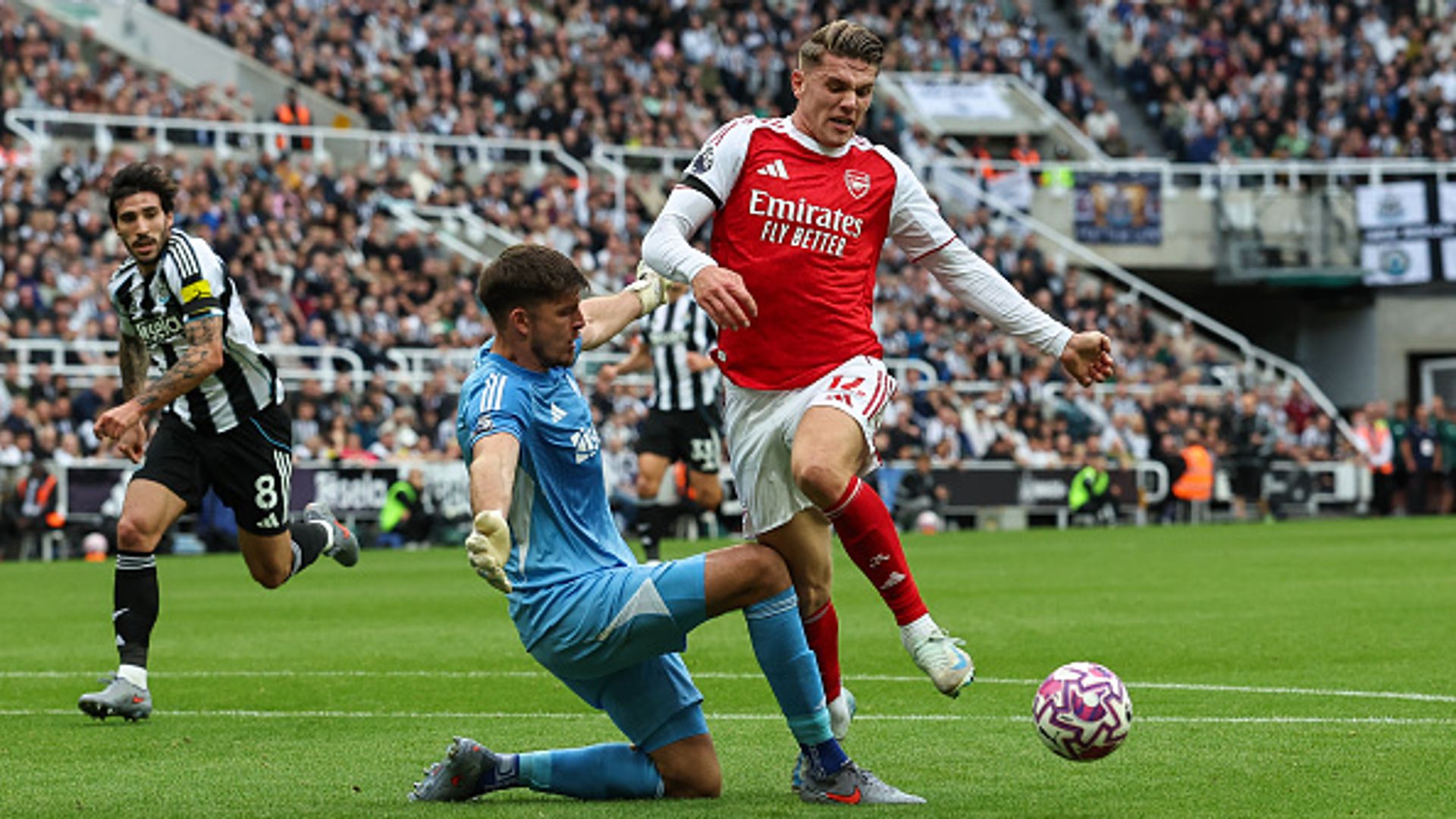Sports
Howard Webb Explains VAR Decision in Arsenal-Newcastle Match

Howard Webb, the chief executive of PGMOL, praised the use of VAR in overturning a penalty decision during the recent match between Arsenal and Newcastle at St James’ Park. The incident involved Newcastle goalkeeper Nick Pope and Arsenal forward Viktor Gyokeres. Initially, referee Jarred Gillett awarded a penalty for Pope’s challenge on Gyokeres, but after a review, the decision was reversed.
In the first half of the match, Pope rushed out to challenge Gyokeres as he approached the ball in the penalty area. Although Gillett initially deemed it a foul, VAR official Darren England recommended that Gillett review the incident. After approximately three minutes of deliberation, Gillett announced that the penalty was not warranted.
Webb explained that the challenge by Pope was fundamentally different from a similar incident involving Chelsea’s Robert Sanchez, who was sent off for a foul in a previous match against Manchester United. Webb emphasized that while both situations involved a goalkeeper making contact with the ball, the nature of their actions differed significantly.
VAR Review Process Explained
The VAR review process revealed that Pope had indeed touched the ball before any contact was made with Gyokeres. Webb described the sequence of events, stating, “At full speed, it looks a penalty, doesn’t it? You can absolutely understand why the referee gave it from what he saw on the field.” He noted that the VAR intervention was crucial in identifying the clear touch on the ball by Pope, which Gillett had not recognized in real time.
Webb elaborated on the decision-making process, saying, “He [the VAR] clearly sees that Gyokeres gets to the ball, pokes it a little bit forward, but then, importantly, Nick Pope also gets a very clear touch on the ball as he steps forward with that right foot.” The VAR concluded that the contact with Gyokeres occurred only after Pope had played the ball, thus justifying the overturning of the penalty.
Despite Webb’s explanation, both Bukayo Saka and Arsenal manager Mikel Arteta expressed their dissatisfaction with the decision after the match. They questioned how the review could be deemed ‘clear and obvious’ when it involved a significant moment in the game.
Comparing the Two Incidents
Webb also addressed the comparison between Pope’s challenge and Sanchez’s foul on Bryan Mbeumo, which led to Sanchez’s red card. He pointed out that while both goalkeepers made contact with the ball, the manner in which they did so was markedly different. Sanchez’s challenge was deemed reckless, as he had raised his leg and made contact with Mbeumo in a way that endangered the player’s safety.
In contrast, Webb characterized Pope’s challenge as a normal playing action, stating, “There’s no contact on the player until the ball has been played away, and then the contact happens fairly normally.” He highlighted that Sanchez’s foul prevented Mbeumo from continuing toward a clear goalscoring opportunity, which justified the red card.
Webb concluded that the VAR’s intervention in the Arsenal-Newcastle match was a demonstration of effective use of technology to correct a potential refereeing error. The decision to overturn the penalty was based on a clear understanding of the sequence of events, reinforcing the importance of accurate officiating in football.
-

 Health3 months ago
Health3 months agoNeurologist Warns Excessive Use of Supplements Can Harm Brain
-

 Health3 months ago
Health3 months agoFiona Phillips’ Husband Shares Heartfelt Update on Her Alzheimer’s Journey
-

 Science1 month ago
Science1 month agoBrian Cox Addresses Claims of Alien Probe in 3I/ATLAS Discovery
-

 Science1 month ago
Science1 month agoNASA Investigates Unusual Comet 3I/ATLAS; New Findings Emerge
-

 Science4 weeks ago
Science4 weeks agoScientists Examine 3I/ATLAS: Alien Artifact or Cosmic Oddity?
-

 Science4 weeks ago
Science4 weeks agoNASA Investigates Speedy Object 3I/ATLAS, Sparking Speculation
-

 Entertainment4 months ago
Entertainment4 months agoKerry Katona Discusses Future Baby Plans and Brian McFadden’s Wedding
-

 Entertainment4 months ago
Entertainment4 months agoEmmerdale Faces Tension as Dylan and April’s Lives Hang in the Balance
-

 World3 months ago
World3 months agoCole Palmer’s Cryptic Message to Kobbie Mainoo Following Loan Talks
-

 Science4 weeks ago
Science4 weeks agoNASA Scientists Explore Origins of 3I/ATLAS, a Fast-Moving Visitor
-

 Entertainment4 months ago
Entertainment4 months agoLove Island Star Toni Laite’s Mother Expresses Disappointment Over Coupling Decision
-

 Entertainment3 months ago
Entertainment3 months agoMajor Cast Changes at Coronation Street: Exits and Returns in 2025









